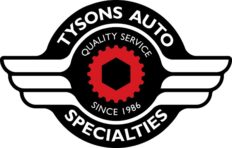Filters are an important part of regular maintenance. Air and fuel filters keep dirt and abrasive grit out of the engine. Problems arise when these filters get dirty and start to clog up. Many driveability problems, such as hesitation and rough idle, can stem from dirty air and fuel filters. For maximum effectiveness, they should be replaced about every 15,000 miles, but driving in dusty conditions can require more frequent air filter changes.
Some cars still have a positive crankcase ventilation (PCV) filter, also called a breather element. This filters the air for the PCV system to ensure clean air enters the engine crankcase. Most cars today draw air for the PCV system from the air cleaner housing so this filter is not needed, but if your engine has one, replace it at 15,000 mile intervals as well. Speaking of the PCV system, the PCV valve (if equipped) should be replaced on a regular basis, too. When you put the new PCV filter in, replace the PCV valve as well. Many cars now use a metered orifice instead of a PCV valve and this should be checked periodically for free flow.
Information courtesy of the National Institute for Automotive Service Excellence (ASE).
The National Institute for Automotive Service Excellence (ASE) was founded in 1972 as a non-profit, independent organization dedicated to improving the quality of automotive service and repair through the voluntary testing and certification of automotive technicians. ASE-certified technicians wear blue and white ASE shoulder insignia and carry credentials listing their exact area(s) of certification. Their employers often display the blue and white ASE sign.
